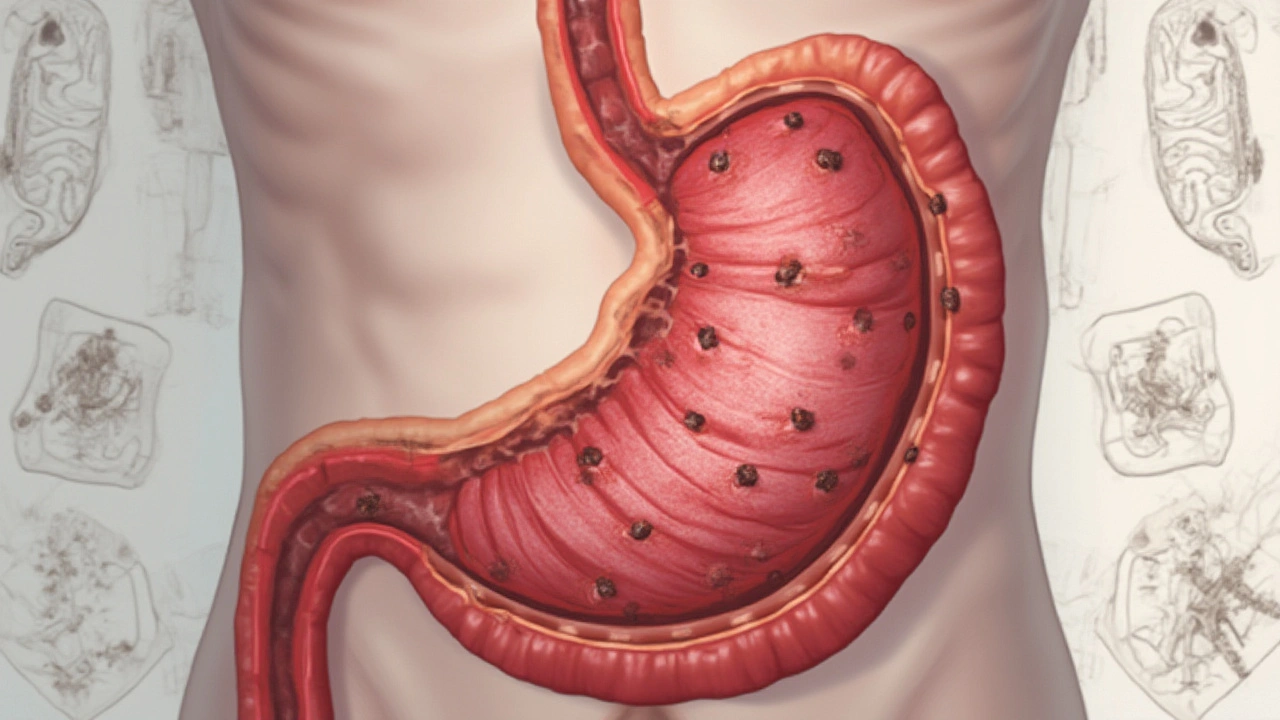GI Symptoms: What They Are and Why They Matter
Got a stomachache or feeling bloated after a meal? Those are classic GI symptoms – signs that something in your digestive system isn’t quite right. They can be harmless, like a little gas after beans, or they could hint at a bigger issue that needs attention. In this guide we’ll break down the most frequent symptoms, why they happen, and when you should call a doctor.
Most Common GI Symptoms
Abdominal pain – This can range from a dull ache to sharp cramping. It often shows up after eating, but sometimes it’s present all day. Common triggers include spicy food, stress, or an upset stomach.
Bloating and gas – When the gut fills with air, you feel full and uncomfortable. Beans, carbonated drinks, and swallowing air while talking can cause it. If bloating is persistent, it might be a sign of food intolerance or irritable bowel syndrome (IBS).
Nausea – That queasy feeling before you vomit can be caused by motion, a viral infection, or certain medications. If nausea lasts more than a few days, it deserves a check‑up.
Heartburn – A burning sensation behind the breastbone is usually caused by acid reflux. Small lifestyle tweaks like avoiding late‑night meals can help, but frequent heartburn may need medication.
Diarrhea or constipation – Both extremes point to an imbalance in how your gut moves food. Changes in diet, dehydration, or a gut infection can flip the switch either way.
When to Seek Professional Help
If any GI symptom lasts longer than two weeks, gets worse, or is accompanied by fever, blood in stool, unexplained weight loss, or severe pain, it’s time to see a doctor. Those signs could mean an infection, ulcer, or even something more serious like inflammatory bowel disease.
For pregnant women, anyone with a known chronic condition (like Crohn’s disease), or people taking multiple medications, even milder symptoms deserve a quick chat with a healthcare professional. Some medicines, such as antibiotics or steroids, can stir up the gut, so monitoring is key.
Remember that lifestyle plays a huge role. Eating regular, balanced meals, staying hydrated, limiting alcohol and caffeine, and getting enough sleep are simple steps that keep many GI symptoms at bay.
Below are a few everyday tips you can start using right now:
- Chew food slowly – it reduces swallowed air and helps digestion.
- Keep a food diary – note what you eat and any symptoms that follow. Patterns often emerge.
- Try a low‑FODMAP diet if you suspect IBS – it cuts down on certain carbs that ferment in the gut.
- Stay active – gentle walks after meals can move food through the intestines.
- Talk to your pharmacist about over‑the‑counter options for occasional heartburn or gas.
Our site also covers related topics you might find useful, like safe ways to buy medicines online, the impact of certain supplements on gut health, and how conditions like Crohn’s disease affect fertility and pregnancy. Browse the posts for deeper dives into specific drugs or supplements that could be affecting your digestive system.
Bottom line: GI symptoms are common and often manageable, but they can also flag larger health issues. Pay attention to what your body tells you, keep track of patterns, and don’t hesitate to reach out to a professional when things feel off. With the right info and a few lifestyle tweaks, you can keep your gut running smoothly and feel better every day.
Atrophic gastroenteritis flies under the radar but can lead to major digestive problems if not caught early. Dig into symptoms, diagnosis, and what modern treatment actually involves today.
